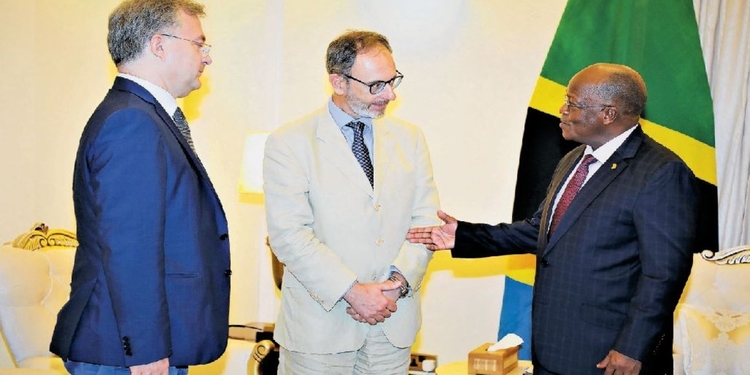
The European Union (EU) has committed itself to continuing to support Tanzania in its efforts to improve Tanzania’s business and investment environment, including by attracting more investors from EU countries to invest in the country.
Manfred Fanti, Head of the EU Delegation to Tanzania, shared his engagement in Dodoma on Friday, when he met with Prof. Kitila Mkumbo, Minister of State in the President’s Office (Investment), for discussions on investment topics of common concern.
“I have heard testimonies from many European investors about the beneficial return on investment in Tanzania, and I must say that, as Member of the Delegation of the European Union in Tanzania, it is my absolute duty to ensure that I continue to work closely with the government to protect the current interests of these investors and to encourage even more investors to come to Tanzania to invest” said Ambassador Fanti.
He noted the government’s attempts to build a successful investment environment, adding such efforts must be wholeheartedly embraced.
“Under the leadership of President Dr John Magufuli, several European countries commend the ongoing efforts of the fifth stage government to strengthen the legal, political and administrative structures to create a friendlier climate that will draw more new investors and enable existing ones to increase their investment,” said the EU’s top diplomat in the country. “EU countries promise to continue to support the government in this regard,” he further expressed.
Relevant areas of cooperation in which Tanzania and the EU might further encourage investment cooperation, such as the textile and mining sectors, livestock and fisheries goods, manufacturing, energy production and distribution, among others, were also addressed during the talks by Prof. Mkumbo and the envoy.
The Minister took the opportunity to highlight some of the priority policy areas prioritised for adoption by the Government in cooperation with different stakeholders, including the planning and implementation of the National Investment Plan, the implementation of the Government Roadmap for Business Environment and Investment Climate Improvement in Tanzania (ROADMAP) and preparation of a robust data system for investment.
He welcomed the collaboration of the EU and other development partners with the government in these fields, in order, among other things, to systematically resolve all the challenges facing foreign investors in the region.
In a similar case, Prof. Mkumbo also held talks with Ms. Lianne Houben, Deputy Ambassador of the Netherlands to Tanzania, at which they addressed target areas for development in order to support Dutch investment in Tanzania.
Any of the fields addressed include further developing the process for obtaining and resolving investor-related concerns, as well as addressing the question of skills shortages to satisfy the relevant skilled and technological skills needs of investors.
The Netherlands is a major investment partner in Tanzania, with Dutch firms participating in different fields, such as financial services, general industries, transport, etc.
The Dutch companies with presence in Tanzania include NMB Bank, Unilever, Heineken, KLM and Shell. Statistics indicate that approximately 161 investment ventures from the Netherlands are registered with the Tanzania Investment Center (TIC) with a total investment capital of US$1.1 billion, creating around 13,995 direct jobs in Tanzania.
